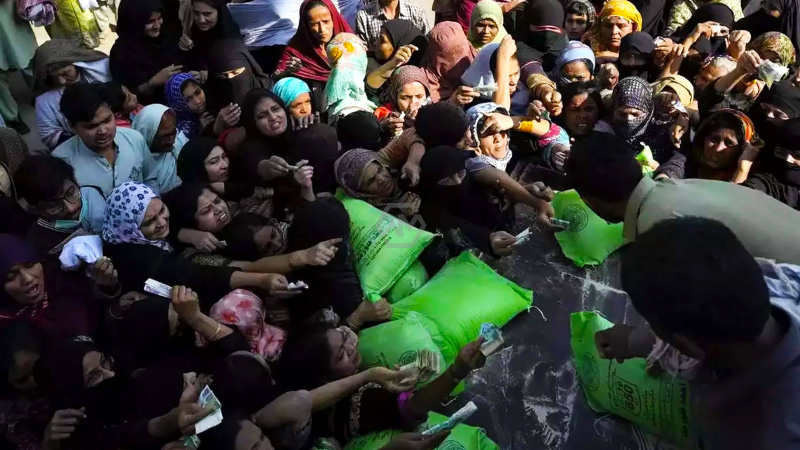Pakistan’s economic unrest has reached a breaking point, with Karachi, its largest metropolis, now facing the highest costs for flour in the entire globe. According to a report by ARY News, atta (flour) prices in Karachi have risen to an all-time high, reaching Rs 320 per kilogram or Rs 3,200 for 20 kilograms.
Because of this outrageous pricing, 1 kilogram of flour now costs Rs 320, which is the highest price in 58 years and illustrates the seriousness of the city’s continuous financial difficulties.
Economic crisis
Notably, Karachi is now the nation’s most expensive flour metropolis, even surpassing Hyderabad, with current rates surpassing the previous record high of Rs 3,000 for a 20-kilogram bag.
Not just in Karachi the costs of necessities skyrocket. Other key Pakistani cities, such as Islamabad, Rawalpindi, Sialkot, and Khuzdar, are also observing a notable increase in flour costs. In these places, a 20 kg bag of flour now costs an additional Rs 106, Rs 200, and Rs 300, respectively.
- Pakistan‘s economic unrest leads to Karachi experiencing world-high flour prices.
- Karachi becomes the most expensive flour metropolis, surpassing Hyderabad.
- EIU Global Livability Index ranks Karachi as 169th with poor quality of life.
Prices in smaller cities like Bahawalpur, Multan, Sukkur, and Quetta have increased to Rs 146, Rs 93, Rs 120, and Rs 100, respectively, placing a severe burden on the local population’s finances.
The situation is made worse by sugar prices, which have increased dramatically and are now at an all-time high in Pakistani retail markets at Rs 160 a kilogram. Numerous cities across the country have been impacted by the increase in inflation, which has exacerbated the already serious financial crisis.
The Economist Intelligence Unit’s (EIU) Global Livability Index 2023 places Karachi among the cities with the worst quality of life in the world, compounding the city’s problems. Karachi’s livability score of 42.5 places it in a depressing 169th place out of 173 analyzed cities, which is significantly below average.
The performance of the city in some areas, such as security, healthcare, culture and environment, infrastructure, and education, continues to be frighteningly poor. The healthcare sector’s stable score shows that little has changed in terms of the situation in this important field.



